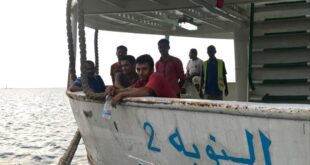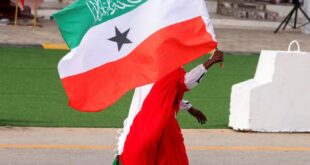Several opposition groups have expressed their fear that the clashes witnessed in Blue Nile state last week may be a prelude to more civil wars in the country. They called on fellow activists in the country to join ranks “to send the military back to the barracks” and restore the Rule of Law. The South Kordofan Security Committee is taking measures “to prevent tribal fighting” in the region. On Wednesday, opposition groups participated in a workshop about the political future of the country.
In a joint statement on Tuesday, the Forces for Freedom and Change (FFC), members of resistance committees, professional associations, and civil society, women and youth organisations called for “the overthrow of the October 2021 coup in order to end the current state of insecurity in Sudan”.
The pointed to the intercommunal clashes in Blue Nile state last week which left tens of thousands of people displaced, and the continuing violence in Darfur and South Kordofan, and called on “all civil forces in Sudan to join ranks in a broad front, and move quickly against the preludes of civil war and more fighting in the country.
“There is no way out except by overthrowing the coup and combat the culture of non-impunity which has led to the crimes that are taking place now,” the statement said.
According to the groups, Sudan is in “a state of being a non-state”. This “allowed the creation of tribal fronts that create problems and conflicts among them, which provides the putschists with an opportunity to create justifications for the continuation of their military rule, and preserve their interests”.
Violence
Last week, tens of thousands of people were displaced following fierce intercommunal clashes (some say between Berta and Hausa, others between El Hamaj and Hausa) that was triggered by a dispute over land in the vicinity of El Roseires, near Ed Damazin, capital of Blue Nile state.
The El Roseires Resistance Committees last Friday pointed to hostility between supporters of the Sudan People’s Liberation Movement-North faction led by Malik Agar and those who support the faction of Abdelaziz El Hilu in neighbouring South Kordofan. They accused the authorities of ignoring warning signs and the first attacks.
The UN Office for the Coordination of Humanitarian Affairs (OCHA) in Sudan is now providing assistance to about 30.000 vulnerable people in parts of Blue Nile state. It said in its latest Humanitarian Snapshot that about 14,000 people have been displaced from El Roseires in Blue Nile state last week.
The UN agency also expressed their concern over the continued deterioration of security situation in western Sudan, in particular in West Darfur where violence earlier this year led to the displacement of more than 115,000 people.
South Kordofan
The South Kordofan Security Committee on Wednesday held an emergency meeting in the government secretariat in the state capital of Kadugli, to discuss the implementation of the South Kordofan Security Plan to prevent a spill-over of the violence from neighbouring Blue Nile state.
Maj Gen Gamar El Sayed, director of the South Kordofan state police, said in a statement that the meeting, that was chaired by acting state Governor Mousa Jabir Mahmoud, decided to strengthen the security situation in the region by taking preventive measures.
Transitional period evaluated
On Wednesday, a number of opposition groups evaluated Sudan’s transitional period between August 2019, when the FFC agreed with the then military junta to jointly rule the country during a period of 39 months, and the coup d état of October 25 last year, carried out by the same military leaders.
The workshop was organised by El Demoqrati newspaper, the mouthpiece of the Democratic Party, in cooperation with the mainstream FFC-Central council, at the Lawyers Syndicate House in Khartoum.
A joint committee of the Democratic Party and the FFC had prepared the evaluation workshop “to study the past stage, identify achievements and failures, draw future lessons, and make recommendations that will help achieve the unity of the revolutionary forces to bring down the October 25 coup”.
Hisham Omar El Nour, Managing director of El Demoqrati newspaper, emphasised “the need to form a new broad front of democratic forces that includes the FFC, but is not be limited to it”.
He said that “the formation of such a broad civil and democratic front should be based on a joint political declaration” which in turn is to be based on the contents of the Revolutionary Charter for People’s Power (RCPP) issued by the resistance committees in Wad Madani, capital of El Gezira, in mid-January, and signed by resistance committees in 15 states, and the Charter for the Establishment of the People’s Authority (CEPA), released in end February by the Khartoum Resistance Committees Coordination.
The contents of the two charters should be unified in a new constitutional document “in which general principles should be formulated in a tight and accurate manner to avoid subsequent arguments and disputes,” El Nour added.
FFC representative El Wasig El Bereir stated that “the workshop comes at a critical time, when sharp polarisations are threatening the country” and welcomed the idea of a broad, unified front “to rid the country of military coups”.
A leading member of the Khartoum North (Bahri) Resistance Committees lauded the FFC which was formed days after the Sudanese Professionals Association announced the Declaration of Freedom and Change on January 1, 2019. “One of the advantages of the FFC is that it was able to collect all the bodies that were working to bring down the regime of Omar Al Bashir, which actually led to its downfall.”
Yet, the FFC could not maintain this broad alliance, as many groups, such as the Communist Party of Sudan, the National Umma Party, and the Sudan Revolutionary Front rebel alliance, left the FFC in the following period for various reasons, he said.
The grassroots activist further criticised the FFC in their dealing with the resistance committees concerning plans to establish a Legislative Council in end 2020, in particular with regard to representation quotas for the resistance committees. “The resistance committees bear their responsibility here, but the bulk of the responsibility [for the failure to form a parliament] lies with the FFC.”
 Eurasia Press & News
Eurasia Press & News



